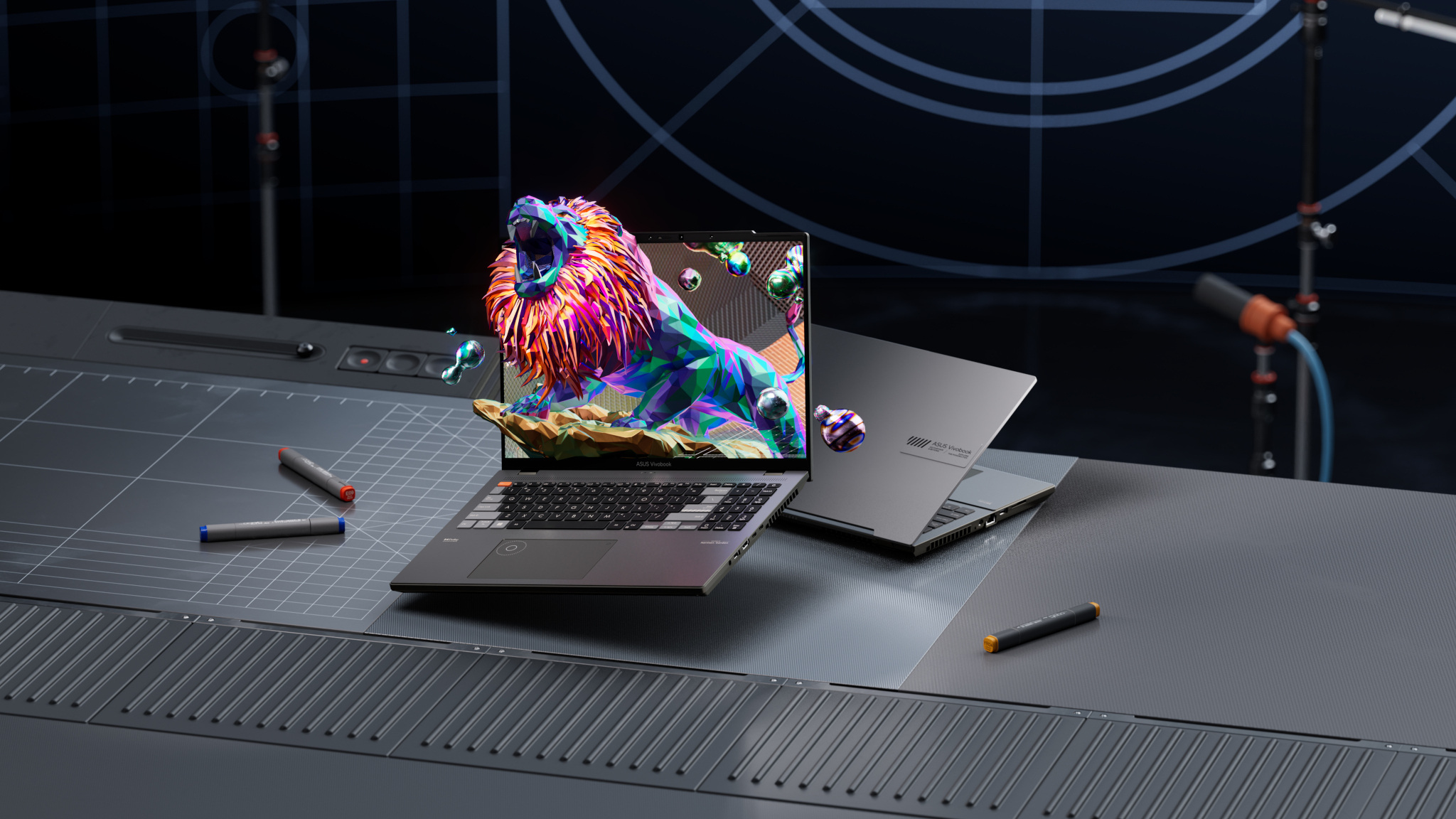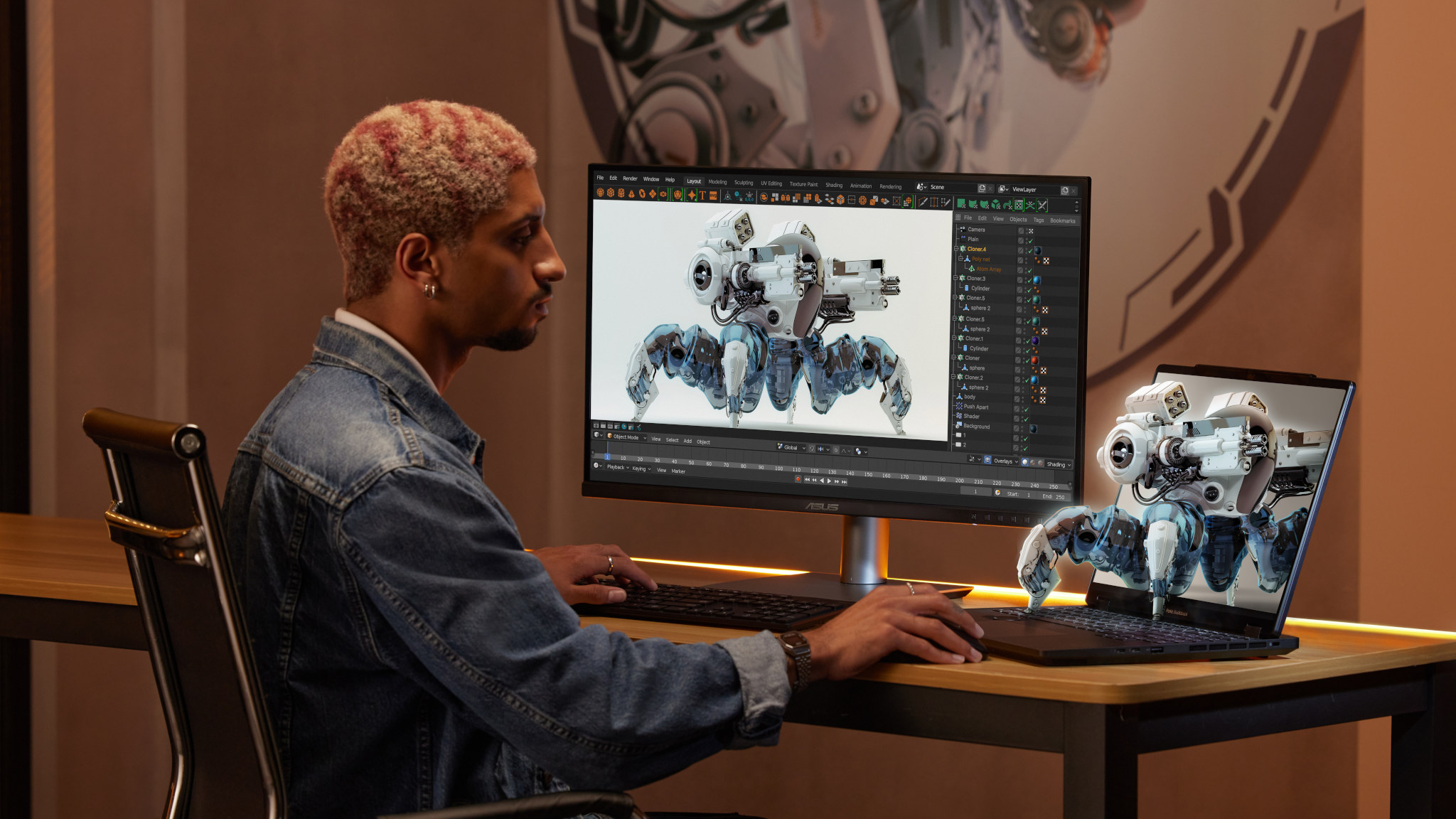ASUS is bringing the first glasses-free 3D OLED display to two of its 2023 laptops and it's amazing
3D might actually be good this time.

All the latest news, reviews, and guides for Windows and Xbox diehards.
You are now subscribed
Your newsletter sign-up was successful
What you need to know
- ASUS has debuted its new ProArt StudioBook 16 and VivoBook Pro 16X laptops, both with glasses-free 3D OLED displays.
- Eye tracking allows the image to shift to always remain in clear focus.
- Both are backed by the latest CPUs and GPUs from NVIDIA.
Thought 3D was dead? Think again. ASUS has debuted its most impressive new tech of CES 2023 in the form of the first glasses-free 3D panel found on a laptop. Well, two laptops.
The all-new ProArt StudioBook 16 and VivoBook Pro 16X have the new displays onboard, something ASUS is calling "Spatial Vision." This isn't just another attempt at pushing 3D, though, there are real world benefits to the tech and this time, it might actually be worth paying attention to.
The only real bad news so far is that neither of these laptops are slated to launch until Q3, so right now it really is just an early tease. But having tried it out in December first-hand, I think this is definitely one of the most impressive reveals of this year's CES.
Eye tracking technology and no glasses required

3D has never been something I've really gone for. I don't want to sit wearing a pair of glasses for hours on end to watch a movie, and glasses-free panels have hardly been impressive to date. How many people turned it off on the Nintendo 3DS because it was terrible and made your eyes hurt?
There are two parts to ASUS Spatial Vision which change all that. The first is that this is a high-quality OLED display. It has a 3.2K resolution and a 120Hz refresh rate. So even if you're just using it in regular old 2D mode, it's really good.
The other is the eye tracking technology. Paired with a lenticular lens, the display is capable of producing a defined image for each eye creating an autostereoscopic 3D image. Because it tracks your eyes, as they shift around, the image responds. So there's no requirement to stay looking exactly straight at the display like you're having a staring contest with it.
The play here isn't just delivering content, either. The idea is to provide a better experience for creators working with 3D models and content. One of the demos I experienced was a simple showcase of some 3D models, and it's hard to put into words how impressive they looked. The level of detail visible is remarkable. It takes a second or two for your eyes to adjust, but otherwise it just feels, well, normal.
All the latest news, reviews, and guides for Windows and Xbox diehards.
ASUS also had a special version of the Avatar: The Way of Water trailer, made for this display. Again, surprisingly good for not wearing 3D glasses, so I could definitely see a future where creating and viewing this type of content is possible on a laptop like this.
The ProArt StudioBook 16 and VivoBook Pro 16X

The 3D display is the star of the show but what about the laptops built around it. Since the target is content creation and 3D modelling, both laptops pack plenty of performance.
The ProArt StudioBook 16 will contain an Intel Core i9-13980HK CPU backed by up to 64GB of upgradeable memory and NVIDIA RTX 40 Series graphics. For additional creative chops, it also has a haptic trackpad that supports stylus input and a rotary dial. Ports include Thunderbolt 4, and there will also be a regular 2D OLED touchscreen version, as well as one containing a professional NVIDIA RTX GPU.
The VivoBook Pro 16X also uses an Intel Core i9-13980HK CPU and NVIDIA RTX 40 series graphics. It can be configured with up to 64GB of DDR5 SODIMM memory and a pair of 2TB PCIe 4.0 SSDs. It supports the NVIDIA Studio drivers for creative workloads and with an upgraded cooling system allows the full 150W TGP to be unleashed for maximum performance.
There's no word on pricing at this point, but with ASUS' traditional home event at Computex in the summer happening before the slated Q3 launch, we'd expect to hear more about it then.

Richard Devine is the Managing Editor at Windows Central with over a decade of experience. A former Project Manager and long-term tech addict, he joined Mobile Nations in 2011 and has been found in the past on Android Central as well as Windows Central. Currently, you'll find him steering the site's coverage of all manner of PC hardware and reviews. Find him on Mastodon at mstdn.social/@richdevine
